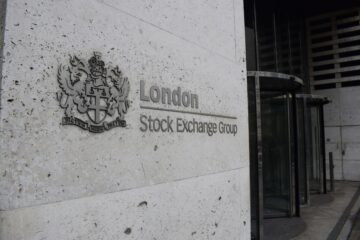Sun Art Retail Group Ltd (HKG: 6808) – Market Cap as of 02/12/17: $74.70bn
Alibaba Group (NYSE: BABA) – Market Cap as of 02/12/17: $447.20bn
Introduction
On November 19, 2017, the Chinese online giant Alibaba acquired a 36.16% stake in Sun Art, an important player in the Chinese offline retail market. A unit of Alibaba will pay HKD22.4bn ($2.88bn) for both direct and indirect holdings in Sun Art, which operates more than 400 stores across China. The deal makes Alibaba the second largest shareholder in the business, which has a market cap of over $10bn. Ruentex, the shareholder that sold to Alibaba, will retain a 4.67% share, while French retailer Auchan Retail owns a dominant 36.18%.
About Alibaba Group
Alibaba Group is a Chinese ecommerce conglomerate focused on online retail through several online platforms. It operates following different strategies and business models varying with the type of service each website provides. For instance, Taobao is a consumer-to-consumer platform whose revenues come almost entirely from advertisement. The other big name between its websites is Tmall, a business-to-consumer service, which relies also on the fees that each seller must pay to utilize the platform.
The headquarters of the company are in Hangzhou, but the geographical reach of the company is extending beyond Asia, with Alibaba trying to establish itself as a truly global company. In order to gain market strength, Alibaba is striving to enrich its consumer experience, by joining the online to offline trend and complementing its e-commerce services with an offline retail base.
Overall the company is performing well, setting each year new records for volumes sold in its shopping festivals. In November 12, 2017, it reached the unbelievable amount of $25bn of GMV (Gross Merchandise Volume) in a day. The revenues for FY2016 were $15.7bn, with a YoY increase of 33% from 2015. Finally, EBITDA is around $4.5bn, with an increase of 26% from the previous year.
About Sun Art Retail Group
Sun Art Group is a leading multi-format offline retailer in China specialized in alimentary products. As of June 30, 2017, Sun Art operated with a total gross floor area of approximately 12m square meters in China. Sun Art currently operates 446 hypermarkets as large as 17,000 square meters across China, under the “RT-Mart” and “Auchan” banners.
As of 31 December 2016, the company showed a strong presence with 14.6% market share by retail sales value. Sun Art revenues float around RMB100bn (c. $15bn) and they are currently still growing but at a decreasing rate.
Industry Overview
It seems that 2017 is reshaping the entire retail industry as ecommerce continues on its relentless growth trajectory. American retail stores are shutting at a record pace and up to 10,000 US stores are expected to shut this year. This trend is being driven by the ambitious growth agenda of the leading ecommerce pure-players, who, unexpectedly, have also taken on a multichannel retailing approach. This means that retailers now aim to provide a seamless shopping experience, whether the customer is shopping online from a desktop or mobile device or in a bricks and mortar store.
While five years ago some retailers feared the end of bricks-and-mortar altogether, they are now trying to reinvent their stores. According to Robert Burke, people have realized that if you combine physical and online and offer something exciting in bricks-and-mortar that can’t be experienced online, it will be successful. Amazon is experimenting with these new formats and its $13.7bn deal for Whole Foods Market can be interpreted as a strong sign of accelerating change. A prompt response was given by the Chinese biggest ecommerce company Alibaba, which agreed to acquire 36% of Sun Art, operating about 400 hypermarkets under the Auchan and RT-Mart banners. In fact, in this reshaping and evolving landscape, China, the largest ecommerce market in the world, keeps setting the benchmark for present and future global retailing.
The revolutionary and occasionally contradictory industry trend is compelled by the mobile-consumer behavior, the innovative social commerce model, and a trusted digital payments infrastructure. Online growth can be translated in a different role played in the future by stores, one that is focused on experience. Retailers recognized that it exists an alternative future of shopping: a hybrid of online and physical. Many new store concepts use technology to either enhance the customer buying experience by offering a great product showcase or by finding ways to bridge the gap between the digital and the physical to make it more convenient for the customer. In the USA, Saks this year unveiled a “wellness” spa at its flagship store, and Walmart is hosting 20,000 “holiday parties”, offering a Santa Claus and toy simulations, to lure people to its stores during the holiday season. The Chinese reaction could not be missing and Daniel Zhang, Alibaba Chief Executive Officer, declared “Physical stores serve an indispensable role during the consumer journey, and should be enhanced through data-driven technology and personalized services in the digital economy”.
Deal Structure
On November 20, 2017, Alibaba Group, Auchan Retail and Ruentex Group announced a strategic alliance. As part of the agreement, Alibaba has agreed to invest HKD22.4bn (c. $2.88bn) to obtain an aggregate direct and indirect stake of 36.16% in Sun Art. Alibaba will acquire such a stake from Ruentex, which will retain a 4.67% interest in the company, while Auchan will also increase its stake in Sun Art and become the largest shareholder with a 36.18% ownership.
The transaction will be conducted via a mandatory cash offer of HKD6.5 per share. The offer term values the entire share capital at HKD62.01bn, roughly $7.94bn. It represents a discount of 24.42% over the last closing price of HKD8.6 on November 10, 2017, the last trading day prior to the share suspension. It also represents a discount of 18.75% over the 5-day prior closing price of HKD8 on November 6. Alibaba and its concert parties, including Groupe Auchan, now own a total stake of 60.71%, and after the conclusion of the share purchase agreement, they will own 77.02%.
Deal Rationale
The deal is Alibaba Group’s latest move to blur the lines between retail and online shopping. Prior to that agreement the Chinese ecommerce giant offered $2.6bn for the domestic department store Intime Retail.
Brick and mortar store chains have recently been losing foothold in the market to companies like Amazon. The landmark acquisition of Whole Foods for $13.7bn has started a chain reaction in the industry. More and more people are taking advantage of the seamless experience that online retailers provide along with better prices due to the elimination of the “middle man”. While some may argue that retail stores offer many benefits like the customer experience from walking through the door to the cashier, one can definitely see a market shift towards the more stay-at-home shopping.
Several intertwined factors have helped the discount of brick and mortar store companies. Low interest rates and overabundance of money have made banks and other funding providers more competitive than ever. Growth focused investments have enabled R&D intensive companies gain momentum and made them look for new frontiers for expansion. Furthermore, the outdated technology and opportunities for improvement have made the grocery giants a likely target. Finally, several senior employees at leading investment banks have confirmed that they are reluctant to lending money in the retail sector in the current market conditions. This turn of events has made Sun Art a discounted purchase for Taobao.
Alibaba’s main intent is to keep up with Amazon by growing through acquisitions. In addition to that they envision a great potential for synergies by integrating their existing technology with currently established hypermarkets. They plan on using big data and machine learning to enhance the customer experience in the offline markets where 85% of sales are made. Amazon has already made strides with cashier-less implementations in supermarkets. It is now a matter of time for Alibaba’s ideas to manifest.
Market Reaction
Sun Art’s shares were suspended from trading on November 13 and were down 5.3% on the next day of trading. The trend continued until December 1, to reach the current HKD7.83 per share.
Alibaba’s stock, instead, has increased about 100% from the beginning of the year. The recent news has had little impact on the overall performance of the holding apart from a slight downward volatility turbulence since the announcement.
Amazon’s shares did not show any significant impact, continuing their increase from the beginning of November. Overall the market has shown little disturbance from the announcement despite the increased volatility.
Advisors
HSBC is acting as financial advisor to Sun Art.



0 Comments